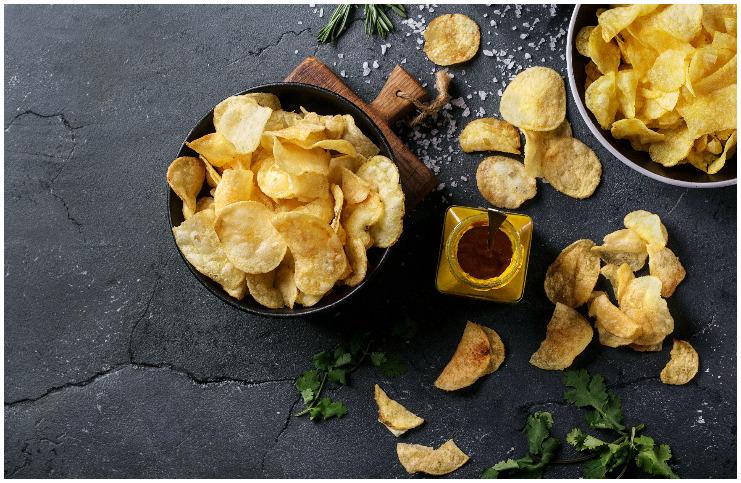Losing weight and living a healthy lifestyle will make you feel better on the inside, look better on the outside, and give you a major edge in avoiding heart attacks, cancer, stroke, and high blood pressure.
There are plenty of steps you can take to establish a healthier rapport with food and accomplish lasting weight-loss success.
Here are 11 tips on how to lose 15 pounds in a month:
Reduce saturated and trans fats in your diet
A diet high in fat can lead to weight gain. More importantly, many nutritionists recommend cutting back first on saturated fats (the type of fat mainly found in meats, eggs, and dairy products) and trans fats (formed when manufacturers turn liquid oils into solid fats).
These bad boys have been associated with stroke and heart disease. In a 2012 study, the researchers compared low-fat with normal diets and found that low-fat foods helped individuals lose 3.5 pounds, reduce their body mass index, and trim their waists (1).
High-fiber foods
There are two types of fiber: soluble, which helps eliminate fat and lower LDL cholesterol, and insoluble, which helps food pass through your digestive system. Thanks to soluble fiber, fats and sugars enter your bloodstream at a slower rate, giving you a steady supply of energy.
Study after study demonstrates that not only do high fiber foods help lower your risk of cancer, irritable bowel syndrome, diverticulosis, constipation, heart attack, diabetes, and high blood pressure, but it also keeps you full and helps you cut calories you intake daily (2).
Every fruit, grain, seed, bean, and vegetable has some fiber. That is why eating the whole foods is so much healthier than simply consuming juice, which contains just the minerals, vitamins, and calories. Moreover, high-fiber foods help satiate hunger longer, which makes you less likely to reach for bad-for-you snacks later.
Drink more water

Drinking a lot of water suppresses your appetite and helps boosts your metabolism. In addition, increasing water intake may help you avoid kidney stones.
According to a 2010 study at the Department of Human Nutrition, Virginia, USA, overweight people who consumed two cups of water preceding a meal lost more weight and reduced their calorie consumption than those who did not drink the water before eating (3).
Low salt intake
Reducing the amount of salt can help you lose water weight quickly, especially when combined with an increase in daily water consumption.
Learn to cook without oil
All vegetable oils, including coconut oil and olive oil, are all 100 percent fat. For this reason, alone, you should steer clear of oils derived from plant foods for losing and maintaining weight loss.
No dried fruits
Dried fruit is a fruit that has had almost all of the water content removed through drying techniques. Due to the fact that water is almost entirely removed from dried fruits, all the calories and sugar come in a much smaller package.
Common dried fruits contain between 38 to 66 percent sugar, and consuming too much of them may contribute to weight gain.
Physical exercise supports weight loss
When losing weight, more physical activity increases the number of calories your body uses for energy or “burns off.”
Running, sprinting, cycling, and jogging are the main types of physical exercises that promote a faster weight loss. For example, walking at an energetic rate of 3.5 mph burns over 250 calories while running increases the caloric burn an additional 200 calories. Lastly, practicing physical exercise builds muscle tissue, that burns calories even at rest.
Avoid artificial sweeteners
Many individuals replace sugar with artificial sweeteners in the belief that this will reduce their total calorie intake and cause weight loss.
However, soft drinks made with artificial sweeteners actually do not help individuals to lose weight and may even be an important cause of the obesity problem because artificial sweeteners can maintain cravings for sweet food and increase appetite.
This could be because the body increases insulin secretion (a hormone made by the pancreas) in anticipation that the sugar will occur in the blood. When this doesn’t happen, blood sugar drops and hunger increases.
Don’t eat after 6 PM
Not eating after 6 p.m. is important to weight loss. Most individuals eat a large dinner and then snack on salty foods or sweets (that will add to the total calorie intake) at night while playing computer games or watching TV.
Additionally, preparing for sleep on a full stomach can lower your sleep quality, as the body is concurrently using energy to digest the food while shutting down to rest.
Eat more slowly
Many studies concluded that slower eating can help you lose weight and feel more full. Speed eating affects the effectiveness of a gut hormone responsible for communicating the brain that you have had enough.
A 2011 study by the Department of Preventive Medicine and Public Health, Japan looked at the weight changes of 529 men over an 8-year period. Study participants who were described as fast eaters attained more than twice as much as slow eaters (4).
Go to bed earlier
Getting more than 8.5 hours of sleep and less than 6.5 hours of sleep is associated with higher body fat.
A 2015 study at the University of California, Berkeley, USA established that for every minute later the participants went to sleep, their body mass index scores went up by 0.035 over 6 years. This basically means that for every hour later someone went to bed, they gained 2.1 body mass index points (5).
Tip – like all habits, if you get to sleep earlier for 30 consecutive days, it will become part of your routine. Over time, you will discover that you won’t need to force yourself to go to sleep earlier.
Do you have any useful tips for losing weight? Share your experience in the comment section below.








